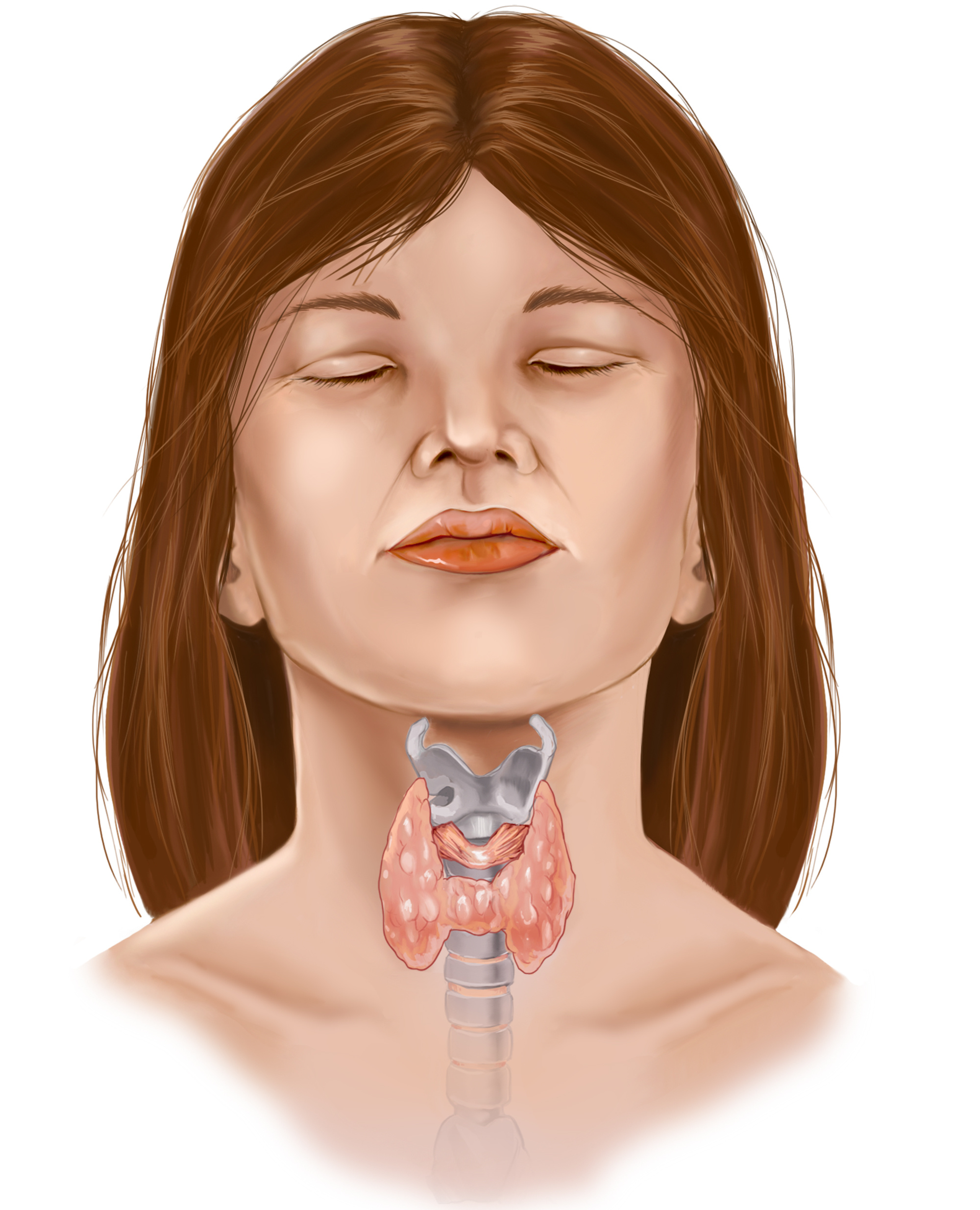Thyroid
Your thyroid gland is located at the base of your throat/neck and is a butterfly-shaped organ that releases hormones. These hormones control your metabolism which is the way your body utilizes energy. Some things could go wrong with it though. You need to understand that thyroid disorders can range from a small and harmless goiter (enlarged thyroid gland) to a significant life-threatening cancer. The most common thyroid problems, however, are hyperthyroidism in which too much hormone is produced (overactive thyroid) and hypothyroidism characterized by insufficient hormone production (underactive thyroid).
Body Functions That Are Regulated By Your Thyroid
The hormones secreted by your thyroid regulate many other vital body functions as well, such as:
Muscle strength
Menstrual cycles
Body temperature
Cholesterol levels and a lot more
Breathing
Heart rate
Central and peripheral nervous systems
Body weight
Hypothyroidi-sm
(Underactive Thyroid)
Signs and symptoms of hypothyroidism:
Hoarseness
Slowed heart rate
Depression
Impaired memory
Muscle weakness
Elevated cholesterol level
Heavier than normal or irregular menstrual cycle
Pain, stiffness, or swelling in joints
Fatigue
Increased sensitivity to cold
Constipation
Muscle aches, tenderness, and stiffness
Dry skin
Weight gain
Puffy face
Thinning of hair
The standard treatment for hypothyroidism comprises daily use of levothyroxine, a synthetic thyroid hormone. This oral medication may restore adequate hormone levels, and help reverse the signs and symptoms of hypothyroidism.
Hyperthyroidi-sm (Overactive thyroid)
Signs and symptoms of hyperthyroidism:
Muscle weakness
Nervousness
Problems with fertility
Shortness of breath
Sudden paralysis
Tremor/shakiness
Vision changes
Weight loss/weight gain
Dizziness
Itching and hives
Possible increase in blood sugar
Light menstrual period/missed periods
Appetite change (decrease or increase)
Difficulty in sleeping (insomnia)
Fatigue
Frequent bowel movement/diarrhea
Heart palpitations
Heat intolerance
Increased sweating
Irritability
Mental disturbances
Thinning of hair
Initial treatment for hyperthyroidism is always antithyroid medicine or radioactive iodine therapy in some cases.
Surgery
Surgery is very rarely used to treat hyperthyroidism, but you may opt for it if your enlarged thyroid gland causes problems in swallowing or breathing. Surgery also may be an ideal option for pregnant women as they cannot tolerate anti-thyroid medicines
What Is Thyroid Cancer?
Thyroid cancer is a disease of the gland when abnormal cells (nodules) start to grow in your throat but is a rare type of occurrence. It can usually be found early, and the treatments work well too. Cancerous nodules may relapse some years down the line even after they are treated.
Thyroid symptoms include:
Constant wheezing
Voice may become hoarse
A frequent cough that is not related to a cold
Lump or swelling in the neck
Pain in the neck and sometimes in ears
Trouble swallowing
Trouble breathing
How Is Thyroid Cancer Diagnosed?
Your cancer can easily be diagnosed if you have a lump in your neck. This lump could be cancerous, and usually, a biopsy of your thyroid gland is enough to check for those cancer cells.
Can Thyroid Cancer Be Prevented?
It is important to know that most thyroid cancers cannot be prevented. Only one rare type of thyroid cancer runs in the family, called medullary thyroid cancer (MTC). A genetic test can let you know if you have a greater risk of contracting MTC. If this test indicates an increased risk, you may choose to have your thyroid gland removed.
When Should You Have Thyroid Surgery?
Thyroid surgery is used for the treatment of thyroid nodules, thyroid cancer, and hyperthyroidism. In this procedure, a part or your entire thyroid gland is removed. Many people usually leave the hospital just a day or two after their surgery. Patients at High Plains Surgical Associates may, however, want you to stay a bit longer due to the quality of services and home-like care offered.
High Plains Surgical Associates is an excellent medical clinic known to deliver the best in thyroid surgeries. Citizens of Gillette, Wyoming are lucky to have General Surgeons like Dr. Sara Hartsaw who has been taking care of their health since 1994.



